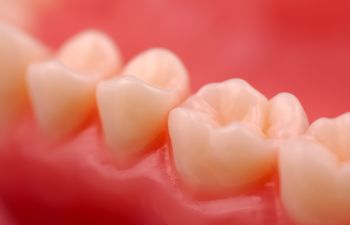If you suffer from acid reflux you may have more to worry about then a burning pain in your throat, neck and chest, known as heartburn. Even more than having the unsettling sensation of your food coming back up into your mouth and a bitter, acidic taste in your mouth; you may need to be concerned with the dental effects of acid reflux.
Tooth enamel is a thin layer of hard tissue that protects your teeth. It is important for your mouth’s saliva to maintain a natural and proper pH balance in order to rebuild the minerals in your teeth. Saliva helps to wash away food particles and keep your mouth clean. Stomach acid from acid reflux can overpower the beneficial properties of saliva which can result in weakened tooth enamel.
If acid reflux persists over a long period of time, the highly acidic stomach fluids will erode tooth enamel. When tooth enamel is worn away and the tooth’s dentin layer is exposed and vulnerable, there are a number of serious oral complications that can arise.
Some symptoms of tooth erosion caused by acid reflux include:
- Mouth irritation or pain
- Food and drink sensitivity including tooth sensitivity to cold, hot and sweet foods.
- Sharp edges on your teeth
- Darkening or discoloration of teeth
- Shortened or thinning teeth
To protect our teeth from the damaging effects of acid reflux you should drink plenty of water. You can chew sugarless gum that will help encourage the production of saliva. Be sure to tell your dentist or dental professional if you suffer from acid reflux. Ask about the benefits of fluoride treatments to help protect your teeth. Your dentist may recommend a custom mouthgaurd to help protect your teeth at night.
If acid reflux has already severely damaged your teeth, your dentist may recommend crowns or veneers to cover and protect the health and integrity of your teeth. It is important for your oral health and overall health to proactively manage and control acid reflux to the best of your ability.














